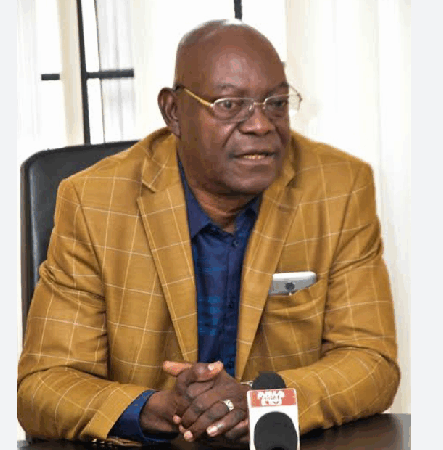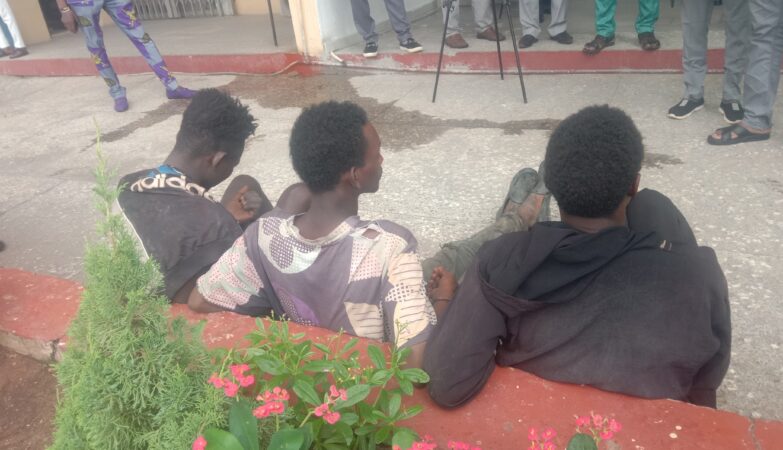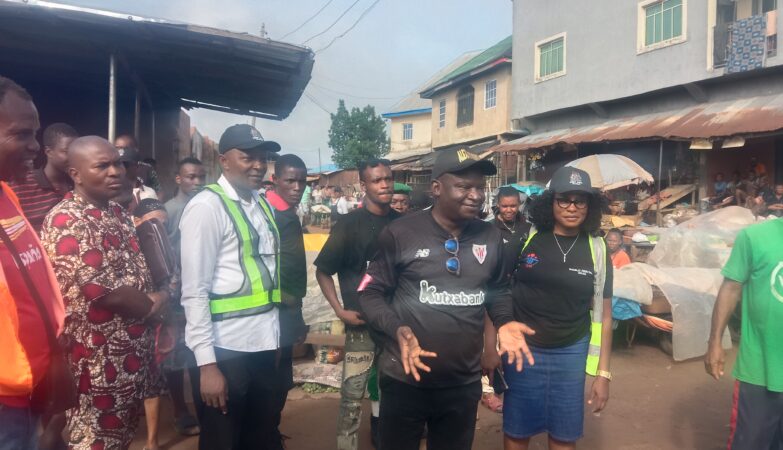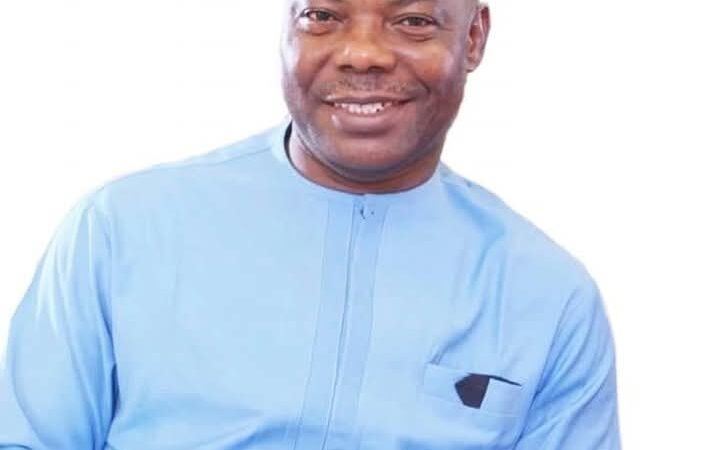Stakeholders have charged Nigerians to end the menace of giving bribes to law enforcement agencies on the roads.
Youth and students advocates for development initiative, YSAD in collaboration with National Orientation Agency, NOA and Foundation for Environmental Rights Advocacy and Development, FENRADE gave the charge during a press conference in Aba, Abia State. Chief Executive Officer of YSAD, Obinna Nwagbara frowned over the continued extortion of motorists on Nigerian roads by law enforcement agencies, disclosed that from Aba to Umuahia, Enugu to Nsukka, Okigwe to Owerri, Owerri to Port Harcourt and across major roads in the south east, motorists encounter multiple security checkpoints with the purpose of extorting road users.
Obinna Nwagbara pointed out that it is disappointed to note that despite countless orders for the dismantling of these illegal checkpoints by various IGs of police, the story continues to get worse.
“We find it strange that rather than have reduced or zero checkpoints in line with the express orders of the police leadership, we are continuing to see more of these checkpoints in our cities or while we commute interstate”.
Shall we also forget a recent resolution passed by the Nigeria House of Representatives last December, calling for the dismantling of the checkpoints? What did we see last Christmas? More checkpoints with gun- wielding officials engaged in ‘Open bazar’ on our roads.
“Sadly, almost all checkpoint- mounting agencies including the police, army, FRSC, NDLEA, and various task forces across the states were active in the show of shame on our roads this past yuletide, openly collecting bribes from motorists and even “making change” for those who so demand or who bribed with higher denomination. Seeing all of these , we were forced to ask: at what point did Nigeria roads become commercial banks and security and law enforcement agents cashier”?
Nwagbara continued, “It is our conviction that the stakeholders and indeed all citizens should be worried and concerned by these brazen acts of corruption, at a time the president continues to talk about anti- corruption campaigns and programmes”
“We call on the inspector General of police and the leadership of sister security agencies should do more than mere issuing of orders to their subordinates and save Nigeria from another ENDSARS experience. More so, the president, president Muhammadu Buhari should demonstrate leadership by compelling the leadership of various law enforcement agencies in Nigeria to call their men to order. We equally call on motorists to obey traffic rules at all times”
Contributing, the state Director of National Orientation Agency, NOA Dr Ngozi Okechukwu recommended wide orientation on and adoption of the standard use of force, training in violence reduction, adopting Internal and External Review systems, training Solutions where a set of rigorous recruitment criteria needs to be adopted when hiring people into the force, adding that this standard should follow global best practices and this will allow for critical assessments of attitudes, motivations, psychological makeup, as well as quality of more than just basic knowledge.
Dr Okechukwu also commended conduct of comprehensive orientation of new members of the Police on rules and consequences regarding misconduct, while routine re-orientation of active members should also be adopted, while the National Assembly should create legislation assigning supervisory and prosecutorial powers to police service commission, National Human Rights Commission, and Public Complaints Commission and room for scheduled public engagement and assessment of the work of civilian oversight bodies to determine the effectiveness and build faith in the system again.
According to Abia State NOA Director, legislators should create legislation granting watchdog licences to Civil Society Organisations and Human Rights agencies to supervise and call public attention to accountability issues where necessary.
She added that stiff punishments should be introduced and efficiently upheld against internal and external interference of investigations of police misconduct.
In her words, “This will serve as a deterrent against persons who try to influence or interfere with ongoing investigations”.
“Administrative/Systemic Solutions:
• • The digitalization of handling complaints of police misconduct should be adopted in line with international best practices to make the job faster and smoother and improve tracking and periodic evaluation.
• • The frequency of misconduct hearings/trials should be increased and optimized for faster and fairer accountability processes.
• • A comprehensive centralized database for managing and tracking offending officers should be set up. This will enable a profiling system to be updated and accessed by authorized entities where and when necessary.
• • A strict quarterly and annual report breaking down complaints by regions, ranks, offences, and outcomes should be written and made available for public perusal. This will engender trust and a sense of accountability towards the Police among the citizens.
• • Incentives for good behaviour among police officers should be employed whereby police officers are rewarded for good action while misconduct is severely punished. This has the potential of making good behaviour competitive and misconduct undesirable.
• • The existing metrics and criteria for promotion and performance evaluation should be amended to include consideration of misconduct. This should be made elaborate and clearly defined by stating the type of disciplinary action administered for an offence or the number of complaints against a police officer. All these serve as a rationale for measuring bad behaviour.
• • In the current system, the internal control system has proved inefficient in conducting investigations and holding itself accountable. Members of the public treat such internal investigations with suspicion and distrust because the Police cannot be trusted to handle cases against itself without bias. Perhaps, employing the services of independent investigators or special prosecutors will mitigate that concern. This practice has been deemed successful.
In their separate speeches, the secretary national union of road transport workers, Abia State, Mr Lazarus Kalu,
the executive director, Foundation for Environmental Rights Advocacy and Development, FENRAD Nnanna Nwafor and Ambassador Onyinyechi Nwosu noted that the uniform men need reform to end the menace of constant extortion on the roads.
According to them, security extortion has fueled alot crisis, stressing that some of them are using proxy young men to extort road users. They added that the governor of Abia State, as the chief security officer in the state should do something urgent.
Mr Kalu from national union of road transport workers said the union had warned their members severally to put their vehicles in order to reduce the harassment they face on the road, while one of the participants cautioned drivers to stop overloading their vehicles with carriers and passengers because they are intentionally doing so with hope to bribe security men on the road to run away from road delay.
On the other part, Ambassador Onyinyechi Nwosu lamented that the security men especially the police after a parent must have presented birth certificate of a kid (s) on transit, some of them will still delay the vehicle, harass them in order to extort.
YSAD in their flex campaign titled “Nigeria desire and deserve a decent society”, #No Dey Give #Stop Extortion, Road No Be Bank #Stop Extortion, No Dey Give; Follow Traffic Rules.
They advised people to call toll free numbers to report cases of extortion on 08031230869 and 07058890028.













